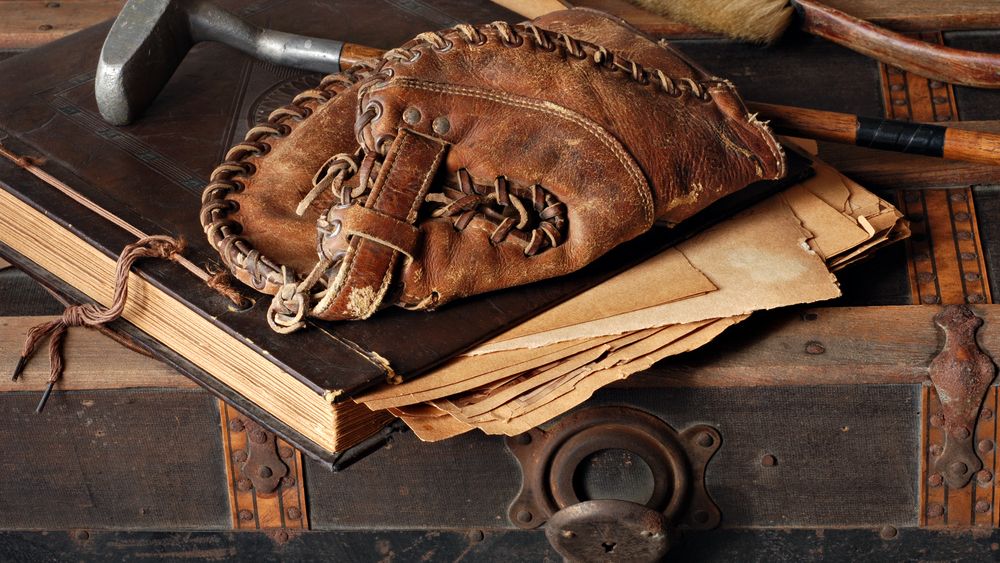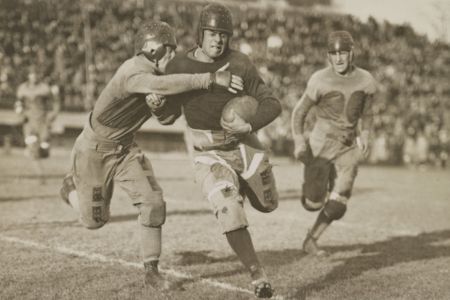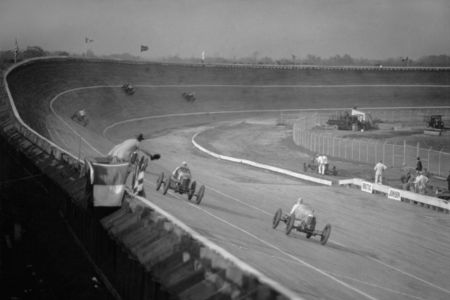
If you have a passion for sports and history, then becoming a sports historian could be an excellent career choice. Not only will this role allow you to indulge in your love for all things related to athletics, but it also provides a unique opportunity to preserve and share important historical events within the world of sports.
This article will explore how to become a sports historian. We’ll also discuss the job outlook for this profession and the various career paths available.
What is a Sports Historian?

A sports historian is a professional who specializes in researching, documenting, and analyzing the history of sports. Their job involves studying and preserving past sporting events, figures, and cultural influences within the world of athletics.
Sports historians can work in various settings, such as museums, academia, sports organizations, or media outlets. They use their expertise to provide insights into significant moments in sports history and help the public understand the impact of these events on society.
To excel as a sports historian, one must possess strong research skills, attention to detail, critical thinking abilities, and a passion for sports and history. They must also have excellent communication skills to share their findings effectively with different audiences.
Career Paths for Sports Historians
Sports historians can choose from various career paths within the sports industry. Some may prefer to work in academia, teaching and conducting research on sports history at universities or colleges. Others may find themselves working in curatorial positions at sports museums, where they create and maintain exhibits that showcase different eras or events in sports history.
Sports organizations also often seek the expertise of sports historians to consult on various projects, such as planning events or commemorating essential milestones. For example, a professional team may hire a sports historian to create a timeline of their franchise’s history for their website or social media channels.
Additionally, sports historian jobs can be in media-related roles, such as commentating on or analyzing sporting events. They may also contribute to sports documentaries or write articles and books on sports history.
Skills and Qualifications Needed to Become a Sports Historian
To become a successful sports historian, one must possess unique skills and qualifications. When you think of a sports historian, you may immediately picture someone with a degree in history. While having a solid foundation in history is undoubtedly crucial, some other skills and qualifications can also contribute to your success in this field. The following are some essential requirements for this career:
Strong Research Skills
As a sports historian, you will spend significant time researching and analyzing historical data related to sports. Excellent research skills, including the ability to gather information from various sources and critically evaluate its relevance and accuracy, are crucial.
Analytical Thinking
In addition to conducting research, sports historians must be able to interpret the data they collect effectively. They need to connect events and trends within the world of sports and draw meaningful conclusions that contribute to understanding our sporting history.
Excellent Writing Skills
As a sports historian, you must communicate your findings through various mediums, such as articles, reports, and presentations. Therefore, strong writing skills are essential to this profession.
A Passion for Sports History
A deep love and appreciation for sports history are at the core of becoming a successful sports historian. This passion will drive you to continuously learn and contribute to preserving our sporting past.
Educational Pathways to a Career as a Sports Historian
Sports historians typically start with a strong foundation in history, whether through an undergraduate degree in history or a related field such as sports studies. Some universities also offer specialized programs in sports history or have courses dedicated to the subject within their history departments.
For those interested in pursuing higher education, a master’s degree or Ph.D. in history can provide advanced knowledge and research skills that are highly beneficial for a career as a sports historian.
In addition to formal education, pursuing additional certifications or specializations in sports history can significantly enhance one’s career prospects and provide a competitive edge in the job market. These certifications deepen your knowledge of specific areas within sports history and demonstrate a commitment to continued learning and expertise in the field.
Internships or work-study programs can also provide aspiring sports historians with valuable hands-on experience and networking opportunities. Many museums, sports organizations, and media outlets offer internship programs specifically focused on sports history.
Sports Historian Salary
How much does a sports historian earn can vary depending on the specific career path and experience level. According to data from ZipRecruiter, the average annual wage for sports historians was $86,335. However, this data does not differentiate between different types of historians, including sports historians.
Entry-level positions in academia or museums may have starting salaries around $30,000 and as high as $137,500. As one gains experience and advances in their career, they can expect to earn higher wages, with senior positions earning much more annually.
Specialized roles within the sports industry may also offer higher salaries due to the demand for experts in this field. For example, sports broadcasters or analysts with a background in sports history can earn significantly more than the average salary for a historian.
Job Outlook for Sports Historians
According to the U.S. Bureau of Labor Statistics, the job outlook for sports historians is positive, with an expected growth rate of 6% from 2023 to 2033. This rate is higher than the average for all occupations, which indicates a steady demand for professionals in this field.
Academic institutions, museums, and media outlets are expected to have the most job openings for sports historians. As universities continue to expand their history departments and offer specialized courses in sports history, there will likely be opportunities for teaching positions or research roles.
Sports organizations also hold potential job opportunities for sports historians. These may include working as a professional team or league historian, conducting research for sports media outlets, or curating exhibits for sports museums.
Networking and visibility within the sports world can also be crucial in landing higher-paying opportunities as a sports historian. Building connections with professionals in the industry and showcasing your knowledge and expertise through publications or presentations can lead to more job offers and advancements in this field.
How to Become a Sports Historian

To become a sports historian, you must have dedication, hard work, and a strong passion for history and sports. It involves delving into the rich tapestry of sporting events, figures, and evolution. Here are the steps to follow to pursue a career as a sports historian:
Increase Your Sports History Knowledge
Becoming a sports historian starts with a solid understanding of sports history. This includes reading books and articles, watching documentaries, and attending lectures or conferences. Exploring online resources like digital archives and blogs can also be helpful.
To deepen your understanding, consider earning a degree in history with a focus on sports studies. For practical experience and to hone your analytical skills, participate in research projects or internships related to sports history.
Moreover, attending conferences and seminars will provide you with networking opportunities and insights into current research trends. Publishing articles on sports history topics can also help establish your expertise.
Another way to acquire more knowledge is to gain hands-on experience, which is vital for aspiring sports historians. Internships, volunteer work, or part-time work at museums or archives can achieve this. Internships focused on sports history provide opportunities to work with professionals and develop research, curation, and writing skills. Volunteering at museums or working with sports archives offers individuals opportunities to handle artifacts, learn preservation techniques, and gain insight into exhibit creation.
Networking in the Sports History Industry
Networking is crucial to building a successful career as a sports historian. Joining organizations like the North American Society for Sport History (NASSH) can provide valuable connections and resources for aspiring professionals in this field.
Attending conferences and events hosted by these organizations allows individuals to network with other sports historians, learn about current research and industry trends, and potentially find job opportunities. It is important to come prepared with business cards and a personal pitch highlighting your skills and areas of expertise.
Staying connected within the community through social media, newsletters, or online forums can help individuals stay informed about job openings, professional development opportunities, and potential collaborations. By actively engaging with others in the sports history industry, individuals can expand their network and increase their visibility within the field.
Excelling in Your Career as a Sports Historian
Success as a sports historian requires continuous learning and strategic decision-making. Beyond foundational skills, several key factors can elevate your career to new heights. Focusing on critical thinking, presentation, and specialization can set you apart.
Key strategies for career excellence:
- Develop a Niche: Specializing in a particular era, sport, or geographic region helps you stand out and become a go-to expert in that area.
- Enhance Critical Thinking: Sports history often involves interpreting complex events and sources. Cultivating strong problem-solving skills will enable you to draw insightful conclusions from historical data.
- Master Presentation Skills: Effectively communicating your findings, whether through public speaking or creating visual presentations, is just as important as the research itself.
- Stay Technologically Savvy: Utilize digital tools for research, data organization, and historical analysis. Understanding emerging technologies can increase efficiency and improve the quality of your work.
- Engage with Academic Journals: Regularly reading and contributing to sports history journals broadens your knowledge and keeps you connected with ongoing debates and developments in the field.
Implementing these strategies can help you carve out a distinctive path in sports history. Staying focused on continuous growth, developing specialized expertise, and utilizing modern tools will ensure you remain competitive and impactful in this ever-evolving discipline.
Start Your Journey to Becoming a Sports Historian
If you are passionate about sports and history, then a career as a sports historian may be the perfect fit for you. Don’t wait any longer to start your journey toward this exciting and rewarding profession.
Utilize resources like Jobs In Sports job listings to find current openings in sports history. Remember to stay connected within the community through social media, newsletters, and online forums. Most importantly, I will never stop learning and growing as a sports historian.
Take the first step towards your dream career by taking action! Start your search for job opportunities in sports history with Jobs In Sports today! Enjoy the adventure that awaits you in this fascinating field where sports and history intersect. The possibilities are endless, so don’t hesitate to embark on this thrilling journey.




